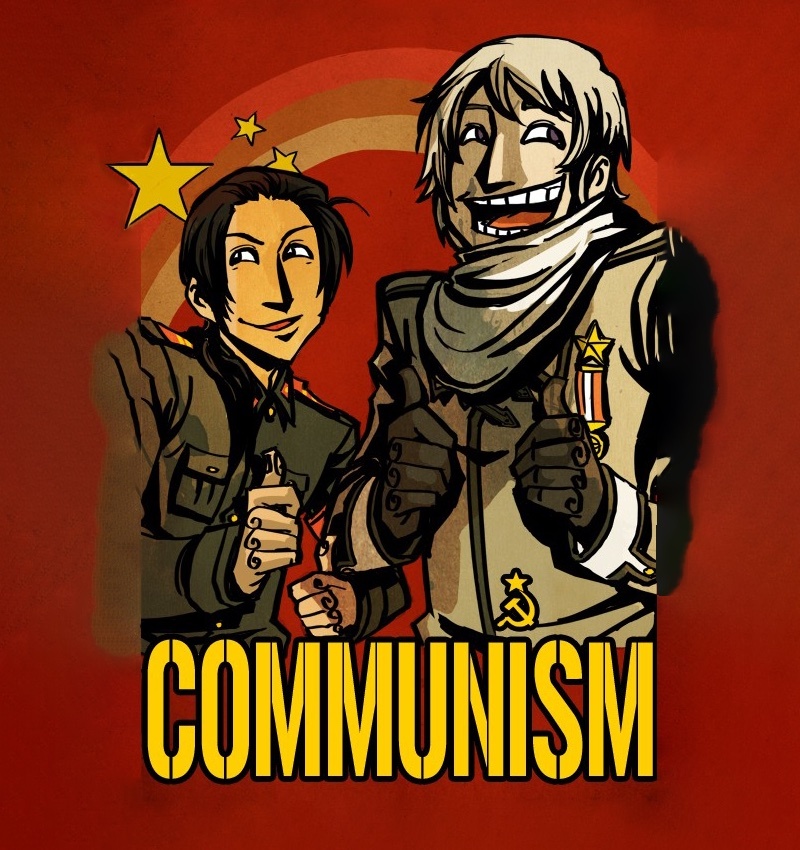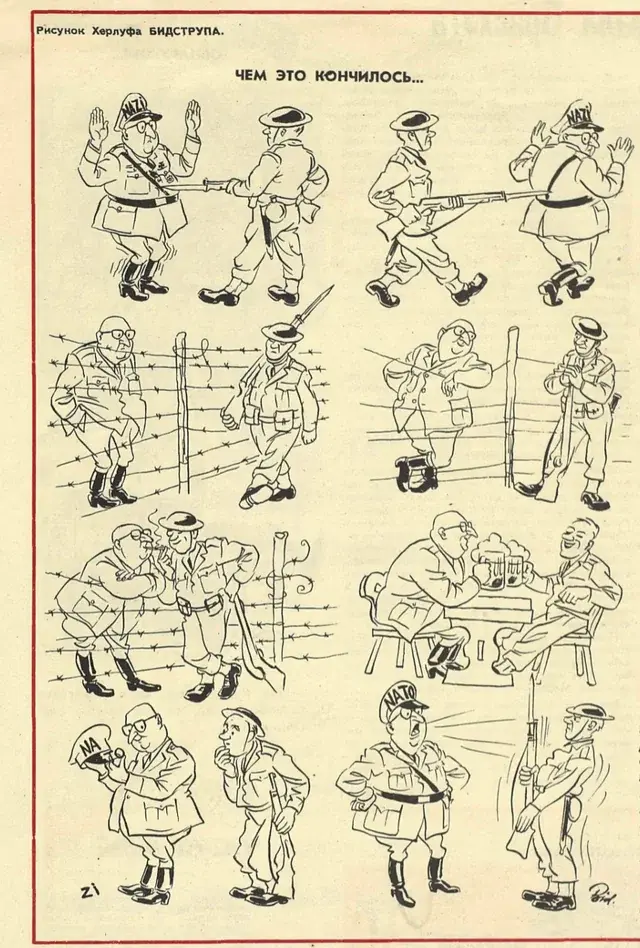

I’d say this sort of ouroboros-esque argumentation that MMT proponents throw out arguing that people who disagree simply “don’t get it” and need to “read MMT theory” to “enlighten” themselves on the “logical” nature of it is certainly one aspect that propels me to the skeptic position towards the pitch. I have indeed read Hudson and actually I went out of my way to search for his ex cathedra comments about it. He seems personally supportive, from what I gather, and if so, you could ring that up as a right-hand constituent of his 70%/30%. Given his anti-Stalinist asides, I’m satisfied with having some disagreements with him.
His assessment of the global subsidization of US dollar hegemony shows that no currency is an island and this is something maintained by geopolitical coercion. This is the primary contradiction that makes a Gordian knot of any US currency sovereigntist schemes like MMT and the overall condition of US dollar hegemony. As it turns out, dollar hegemony is turning out to be a two way street turned single-way only by the traffic cop’s gun, and the implementation of domestic MMT-derived monetary policies will press upon further necessity for the US state to preserve the external status quo and coerce its involuntary creditors to further subsidize the American “monetary sovereignty.” To assert otherwise, that one can print as much as they want for the domestic market without external spillover is rather laughable as it maintains idealism over the materialist outlook, as this scheme under other names has taken place before. Reaganomics at home to rescue the domestic economy was ultimately paid by those economies abroad, to disastrous consequence for the likes of Japan.
However, the technical feasibility of MMT is secondary to my rejection of the pitch. It is, in plain terms, it is a new FDR style New Deal. Appetizing for your progressive liberals and your social democrats, but something entirely objectionable as a ML. It is to put a lipstick on a pig and to, once again, claim that an ever more perfect capitalism is preferable than socialism, suppressing the latter through material financial appeasement. This is why MMT proponents range from Trots like Hudson all the way to mainstream US economists like Kelton. The etiological base of support for an economic policy, the people that proponents stand beside and their fellow travelers says rather a lot. As for Marxists, I recommend reading “Modern Monetary Theory: A Marxist Critique.”
How MMT compares contra to neoclassical slop is something I care not for, as to that end, why not go one more step and compare how superior MMT is to feudal monetary economics or the currency price controls of Diocletian in the 4th century? How non-Marxist economics incestuously iterates upon itself to spit out its newest take is immaterial and in that sense, MMT is plainly the new rendition of Keynesianism, meant to plagiarize socialist theory to plaster onto a model of a “reformed, more humane and egalitarian” capitalism. Socialism is the alternative to which MMT must be compared to and in such a comparison, it’s the two century old Proudhon argument dusted off and brought out from the museum display: that the only real problem with capitalism is the monetary dynamics.
One thing I will concede is that I have no doubt that if exigent pressures, similar to that during the post-Depression era, were to resurface, this MMT would absolutely be very likely enacted as a concession to curb the winds of support for socialism. It would follow in those footsteps of FDR just as the New Deal followed that of Wilson’s “every American a homeowner” concession to sabotage the SPA of Eugene Debs.










Given the scale of what took place and the response from the West not just to dismiss it but to justify and even celebrate it; given that this act of terrorism occurred exactly a week from 9/11, I think it’s time to finally talk about 9/11 and though, yes, while inserting the two decade boilerplate about condemning terrorism and recognizing the innocent lives lost, to assess what it really meant.
Who “won” after 9/11?
It has been said endlessly in the two decades since 9/11 that the attacks that day permanently ended the unipolar euphoria of the US Cold War victory: it derailed the consolidation of US unipolarity by diverting it into two decade-long West Asian entanglements. Especially nowadays with the US unipolar status in complete disarray, you frequently see US policy makers and the Washington think tank blob cry crocodile tears about what a “gift” 9/11 was to China. This is not necessarily untrue, Bush had been priming for a confrontation with China even as he allowed its entry into the WTO. Then 9/11 happened and it wasn’t until Obama, exactly ten years later, that finally formalized the policy shift of the "Pivot to Asia,” which due the innumerable contradictions of US hegemony forcing it to react to Europe and (once again) West Asia, is still a “work in progress” in the present day.
The US fixation with its West Asian conflicts did allow China a breathing space for much of an additional decade until Trump finally took the US jumping with both feet into the New Cold War. Though there was always the Washington think tank cope as the US got bogged down that the puppet Afghanistan project was actually a 5D chess move that would allow a US presence right on the doorstep of Western China and meant the two decade occupation would allow the US to have its cake and eat it too, the total rout of the US with its 2021 Saigon moment nullified even that.
There used to be rather infamous op-eds from NYT and what-not, once the 9/11 self-censorship taboo faded a little, asking rhetorically if “Bin Laden won?” From the perspective of US unipolar hegemony, it does look like the attack did an incalculable damage not through the event itself but the US outsized reaction to it. However, is US hegemony really what matters most to the US political ruling class, “über alles?”
The specific attacks of 9/11 didn’t attack the elementary schools, they didn’t attack LGBT clubs, they didn’t attack parades; Americans would target those places themselves. They attacked the World Trade Center and the Pentagon. If the other plane didn’t crash land in Pennsylvania, the consensus based on its DC bound flight path after two decades is still that It would have likely been flown into the White House or the US Capitol building. As such the targets were principally the financial elite, the military elite and the political elite.
There was supposed to have been a precedent set with Pearl Harbor that the United States was never to be attacked, or in Roosevelt’s own words in his “Day of Infamy” speech: “will make it very certain that this form of treachery shall never again endanger us.” The consequence for Pearl Harbor was the two nuclear bombs and the permanent semi-occupation and vassalage of the perpetrating Japan to the present day.
Pearl Harbor: the previous attack on “America”
As Daniel Immerwehr wrote in “How to Hide an Empire,” in the eyes of the US political elite like Roosevelt, an attack on Hawaii, nearly 5000 miles from Washington DC, was more of an opportunity than a threat to themselves. Not only that, in the just recently forcibly annexed settler-colonial holding of Hawaii (still not a state) far from the continental US, there was a chance that the average American also would fail to see it as a threat. As such, Roosevelt’s draft edits allude to an anxiety that the American people wouldn’t get it at all:
Roosevelt insisted: “Hostilities exist. There is no blinking at the fact that our people, our territory, and our interests are in grave danger.” Yet taken from the eyes of the American ruling class, Pearl Harbor, in comparison to 9/11, is respectively akin to someone setting your front lawn (which you just expanded in size by forcibly seizing from a neighbor) on fire compared to literally coming for your jugular with a knife. You can see someone setting your lawn on fire as the greatest possible threat to you only if you can never even conceive the possibility of someone being able to take a blade to your throat. The greatest threat to the ruling class was supposed to be just to their way of life, not to their very lives themselves.
The Unthinkable becomes Thinkable and the Impossible is actually Done
9/11 not only negated the historical meme that Americans propagandized themselves with that “they were geographically gifted” on their stolen continent and “untouchable,” buried under lines of defence from enemies with territorial meat-shields like Hawaii, Guam, Japan, Britain, Western Europe and West Berlin that would-be adversaries would be forced to chew through first like layers on an onion; it also struck at not principally the working class masses but the literal elite themselves. Generations of American imperialism was supposed to have created an utterly vast breathing space and this “lebenstraum” was meant to make the continental US on which the US ruling class inhabit untouchable.
Even in the scenario of “World War 3,” so long as it remains conventional, in the geo-strategic calculus of the US ruling class, those immense territorial meat shields that it set up (for China: the first island chain, then the second, then the third; for Russia: the former USSR territories like Ukraine, then the former Warsaw Pact NATO, then Western Europe) mean that it would take a “World War 4” for a conflict to conceivably reach the continental US, let alone threaten the elite themselves who could scurry into their bunkers in Cheyenne mountain if things get too hot.
9/11 cut past all of this calculus like a hot knife through butter and brought the truly utterly unthinkable to realization, not only was the US squatter state on occupied Turtle Island subject to attack but the ruling class themselves were the ones specifically targeted. It’s like the hierarchy of needs where you never realized, through your privileged material conditions, there was an even lower base on the pyramid of your needs that you had been always standing on and which could be pulled out from under you.
This is the reason for the overwhelming and psychopathic US military response and the two decade commitment to devastate West Asia. The lesson needed to be taught that that what was make thinkable and possible must be made unthinkable and impossible again. Of course, there is no putting the genie back in the bottle, but though the emperor was revealed to have no clothes, the world needed to be made to pretend he was still fully clothed - at gunpoint.
Through this, it didn’t really matter whether Iraq and Afghanistan could be built into stable client regimes to service US hegemonic interests, but that as much devastation as possible should be done so that every time someone glances at the misery of contemporary Iraq and Afghanistan, they would link it to the US and think that “this all happened because 9/11 attacked the US.” By such aims, the bigger the bloodbath, the better. Through this, the US ruling class really did achieve their goals, despite the ultimate failure of both invasions and occupations.
The Contradiction of Life and Way of Life
Does all this mean that the much bemoaned “wasted decade” for the US is actually a rare species of camouflaged victory if you look further into it? No, that would stretch the provided thesis too far. What the US reaction to 9/11 shows that there is a contradiction between the interests of US hegemony, which benefits all Americans through the dividends of its financial imperialism and the interests of the US ruling class, which benefit only itself and its preservation, which 9/11 was experienced as a startling reminder to them.
That there exists a distinction between the two, though in normal times both are aligned and in near perfect sync, is what 9/11 exploited and the US response has shown to exist more clearly than in any other moment in American history. The outsized retaliation by the ruling class to reassert their “untouchability” through the “counterterrorism decade” was actually a net negative for both normal Americans and for the system of US hegemony, but the ruling class did not care because 9/11 was what shown them that - when forced to choose - their individual life were more important than their way of life.
To put it in analogy, this is akin to a business owner unhesitatingly sacrificing the profitability of their own business, making it far less competitive to rivals, by a fire sale of assets and diverting earnings to pay for their own emergency surgical procedure. At that point, to that individual, there are bigger things at stake when made to realize they are forced to choose, even though what normally matters is their business and it suffers through this opportunity cost. Becoming cognizant of this contradiction is the most revealing lesson of the US response to 9/11.